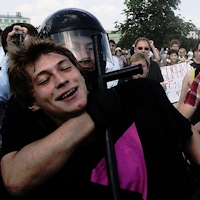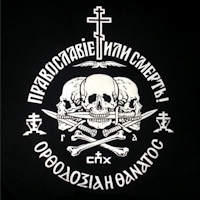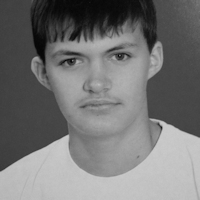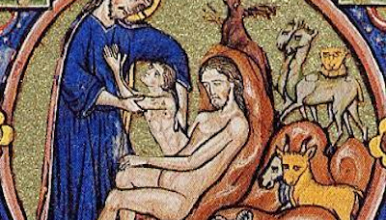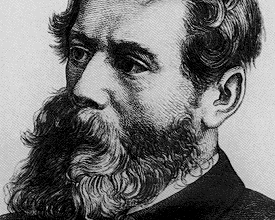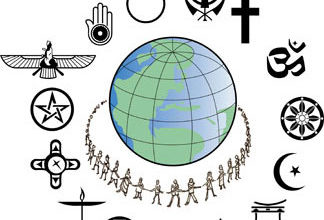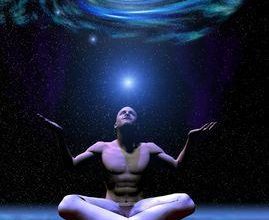It's been a busy few months for anyone paying attention to issues affecting lesbian, gay, bisexual, and transgender (LGBT) people in Russia.
This summer the Russian parliament passed a bill prohibiting the so-called "promotion of nontraditional sexual relations" in the presence of minors, a euphemistic expression replacing language in the initial bill which more explicitly prohibited "the promotion of homosexual relations." The new law gives no explicit definition of "promotion," resulting in an environment where Russia's mass media has curtailed any reporting that might portray LGBT people or their relationships in a positive light.
Read More
Murder in Volgograd – Part 2
In a previous post I presented some information about the murder in May 2013 of Vladislav Tornovoi in Volgograd, as well as some background information for framing the discourse around homosexuality in Russia. This post continues where the last left off.
Read More
Murder in Volgograd
I wrote this piece back in May, hoping for publication with the Divinity School's Sightings column. But writing about current events is like trying to hit a moving target. Before it could be published, there were new developments in the case, requiring significant revision to remain under a 750-word limit. So I've decided to post here. This is the first installment on this subject.
Read More
Russian Church-State Relations: Variations on a Theme
I first visited Moscow in December of 1989 as a tourist on winter break from a program in Russian & Eastern Studies at the University of Kentucky. During one of many bus tours, we stopped at the Kropotkinskaya metro station and piled out into the snow to take pictures of a gigantic, steaming, outdoor swimming pool.
Read More
Eucharistic Reflections: Denys the Areopagite, Bonaventure, Hadewijch, and Meister Eckhart
In the final chapter of The Darkness of God: Negativity in Christian Mysticism, Denys Turner asserts that our contemporary ideas of what constitutes "mysticism" have tended to focus on a kind of experientialism that would seem very foreign to the historical authors we classify as mystical theologians. Rather, beginning with observations offered by Andrew Louth on the mystical theology of Denys the Areopagite, Turner suggests that what the modern reader has collapsed to an experience of the presence of God is actually a phenomenon deeply rooted in worship, liturgical practice, sacrament, and private prayer.[1] Rather than ends unto themselves, these
Read More
The Origin of Gender in Eriugena’s Periphyseon
In his presentation titled The Sleep of Adam, the Making of Eve: Sin and Creation in Eriugena,[*] Donald Duclow explores the gendering of humanity as related in John Scottus Eriugena's Periphyseon, with particular attention to some Eriugenian innovations on the theme. In many ways Periphyseon draws on previous works including those of Gregory of Nyssa[1] and Maximus Confessor. Yet John embellishes these previous accounts in ways that are both novel and uniquely his own. What follows is a brief exploration of several key points in Duclow's presentation, followed by a couple of reflections regarding distinctive moments in Eriugena's work.
Read More
Feuerbach and The Essence of Religion
Van Harvey's claim that Feuerbach's Essence of Religion[1] presents an important advance over The Essence of Christianity[2] rings true to me in several ways. To understand why, it is necessary to first briefly outline Feuerbach's argument in Christianity.
Read More
Kierkegaard and Barth on “mediation”
Barth and Kierkegaard may each in his own way be seen as voices of resistance against the trends inherent in the liberal theology of their respective milieus. In Fear and Trembling[1], we see Kierkegaard's protest against the totalizing philosophy of the Hegelians. Some 75 years later Barth's Epistle to the Romans[2] would cite Kierkegaard's "leap of faith" in Barth's own objection to the comfortable way in which God had been brought to the level of an object within the realm of human understanding. Both authors reject what might be referred to as "mediation," or rational explanations of encounters between human
Read More
Hegel and Troeltsch on the “absoluteness” of Christianity
While it can be said that Hegel argues for the "absoluteness" of Christianity in his narrative of the development of the "consummate" religion, Troeltsch's characterization of Christianity is not absolute, but rather "normative."
Read More
Schleiermacher and the Intuition of the Infinite
If you haven't experienced the intuition of the infinite, then Schleiermacher believes he can lead you only so far. While he can attempt to outline the journey, in the end you have to experience it for yourself. Past a certain point, anything he has to say about it will become incomprehensible. But through the intersubjectivity of a community that finds at its root just such an intuition, you may find your way.
Read More

